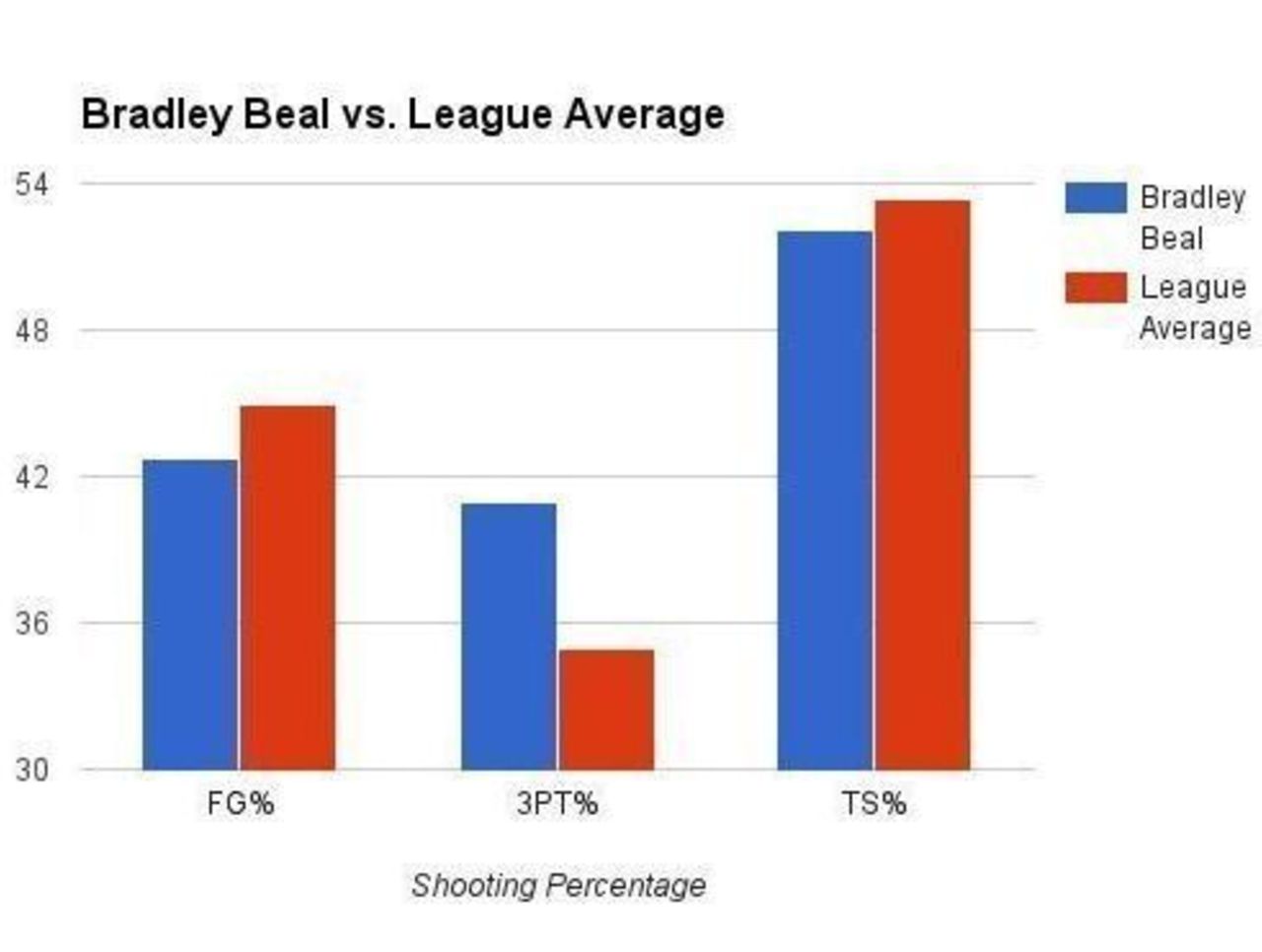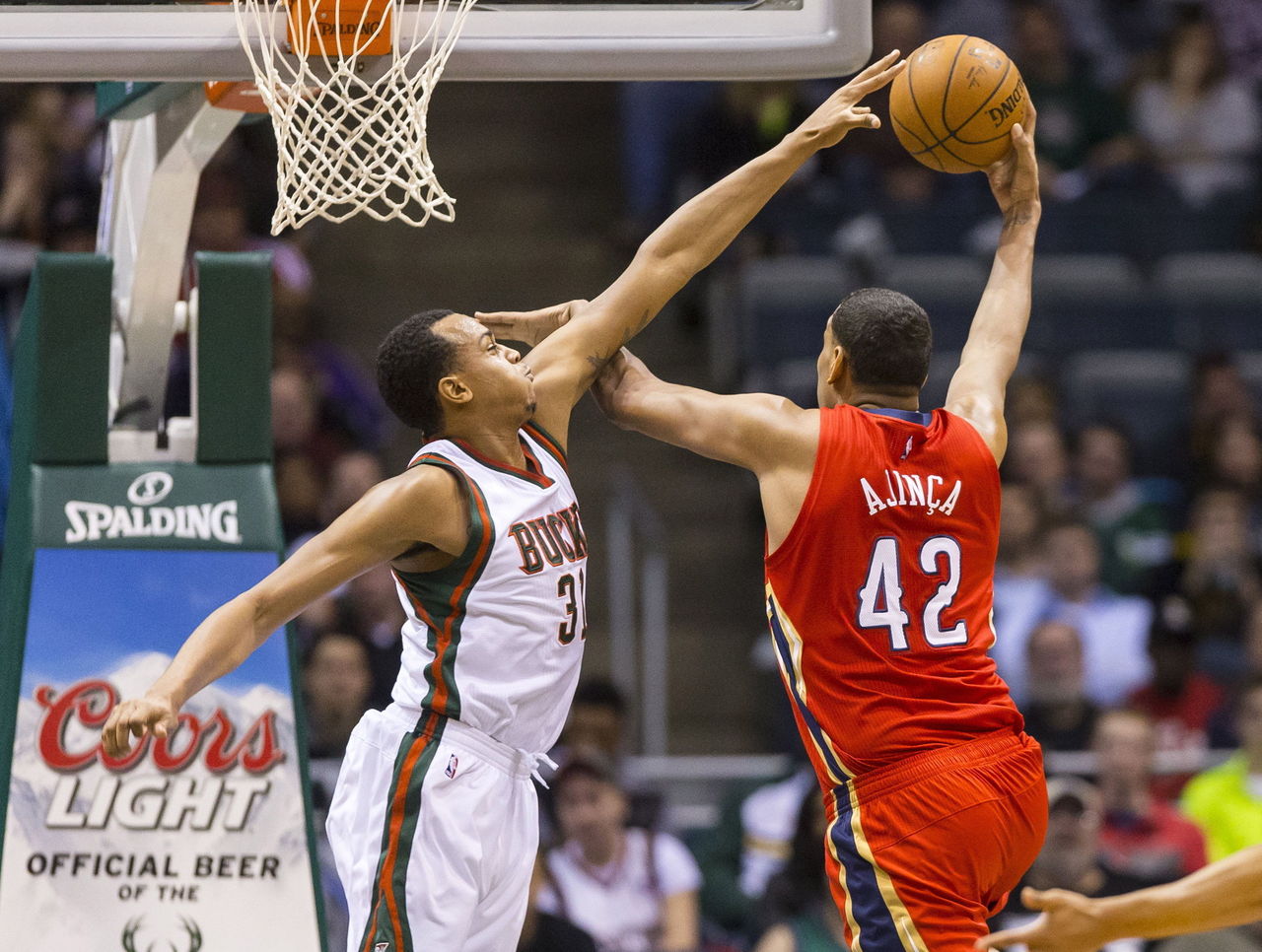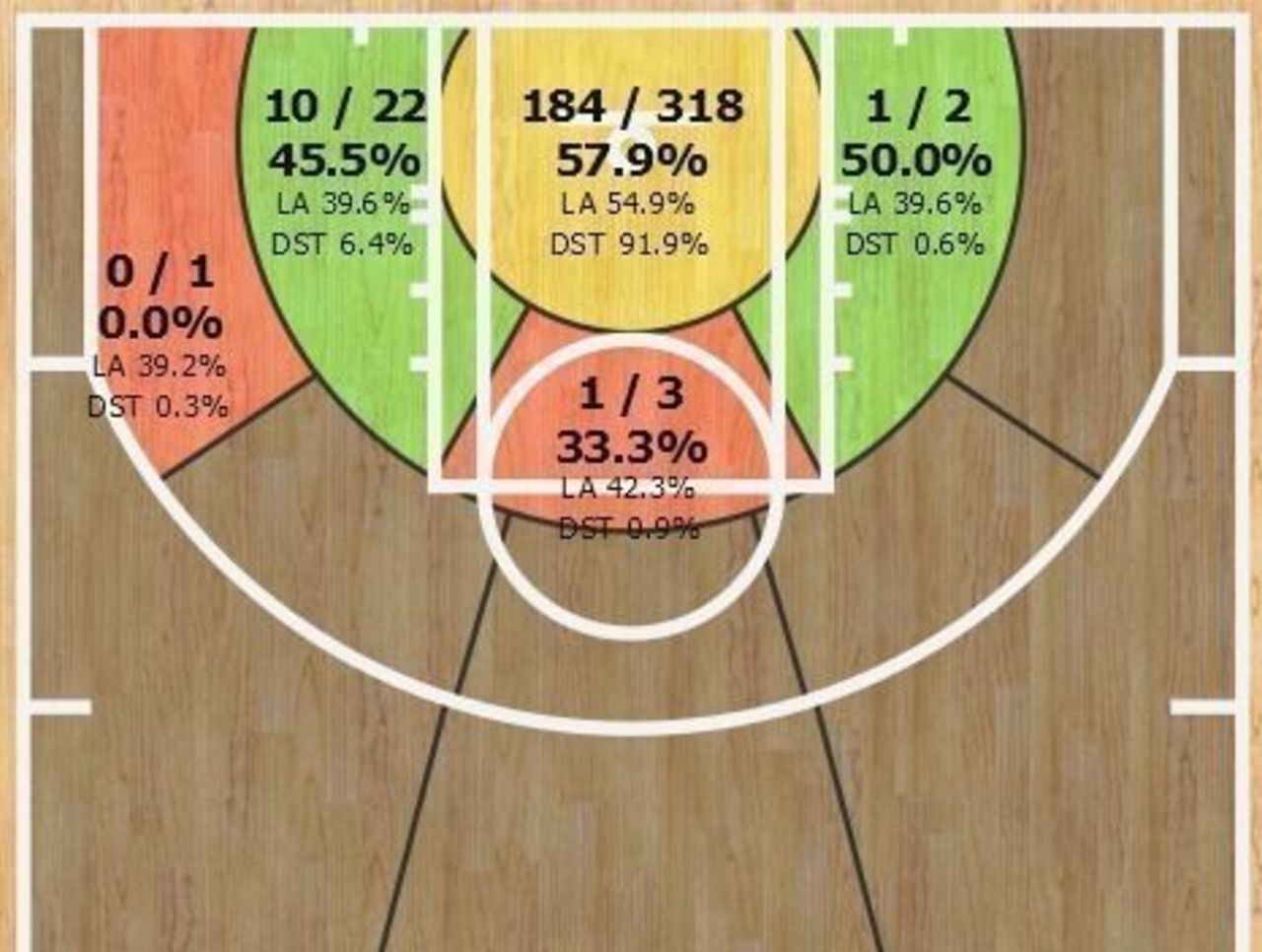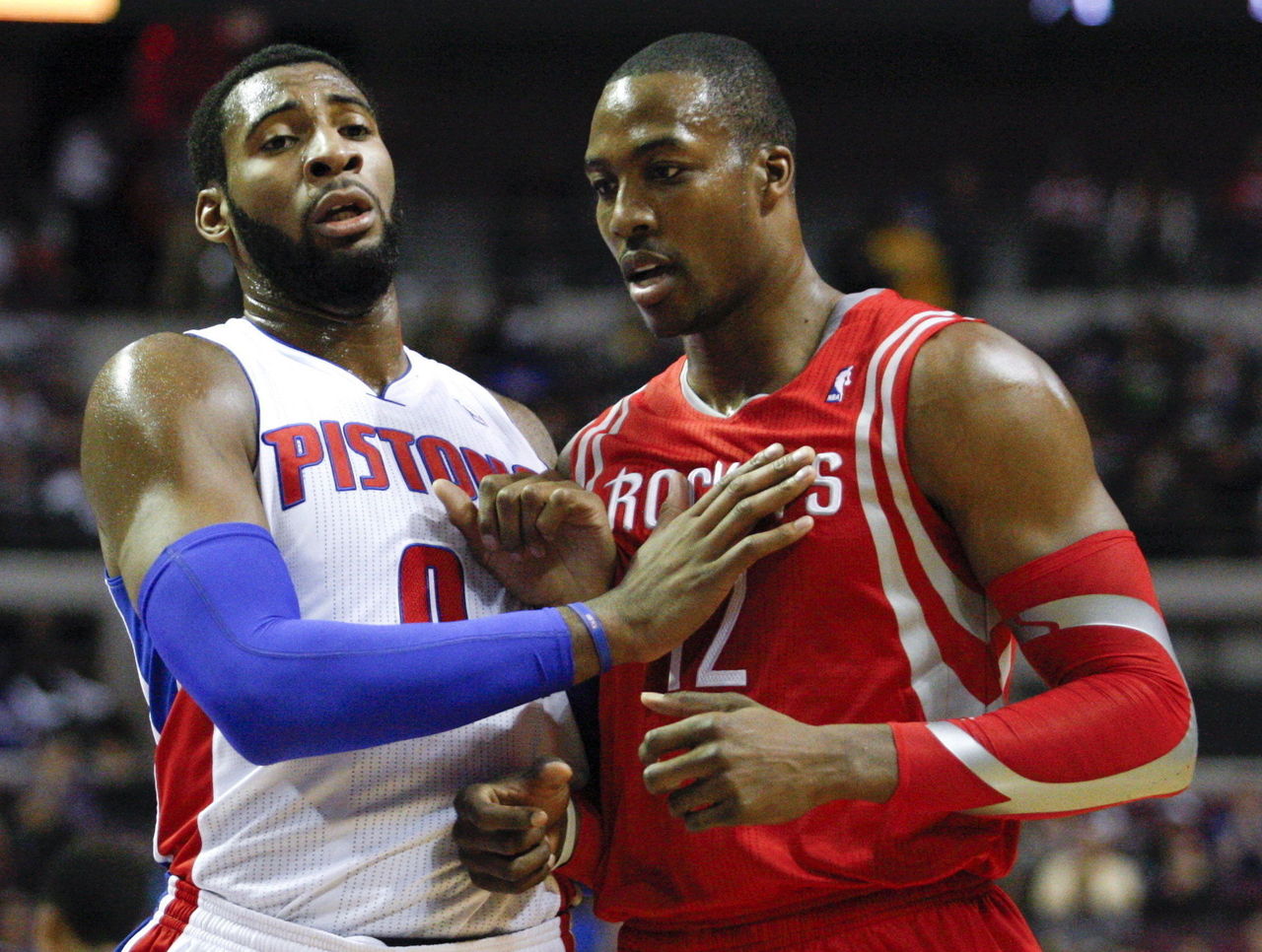Earning a raise: 3 players in line for extensions
Several members of the rookie Class of 2012 have already paid dividends for their respective teams. Now it's time for their teams to pony up.
Players like Anthony Davis, Damian Lillard, Michael Kidd-Gilchrist, and Jonas Valanciunas have all signed hefty extensions this summer, and contract talks are heating up with Harrison Barnes, Festus Ezeli, Tyler Zeller, Terrence Ross, and others.
Here's an in-depth analysis on the extension cases for three other candidates: Bradley Beal, John Henson, and Andre Drummond.
Bradley Beal
The Washington Wizards and Beal want to sign an extension, but it's a matter of price. Washington is reportedly balking at Beal's firm demands for a maximum deal.
It's easy to make a case for Beal. The 22-year-old is coming off a stellar playoff performance where he averaged 23.4 points with 5.5 rebounds and 4.6 assists per game.
Furthermore, Beal is also just one of nine players in NBA history who have made over 300 3-pointers, while averaging more than 15 points per game before the age of 22. Four other members on that list? Kyrie Irving, Stephen Curry, LeBron James, and Kevin Durant.
However, there's just cause for the Wizards' hesitancy.
For one, the Wizards are reportedly concerned with Beal's tricky history with ankle and leg injuries. Beal has missed an average of 18 games per season.
There's also the matter of Beal's usage. Despite being one of the best 3-point shooters in the league, Beal has tanked his scoring efficiency by shooting a heavy volume of mid-range shots. That has led to an ugly career true-shooting percentage of 51.3.

Still, there's no denying Beal's talents. Once he puts it together, Beal could be one of the best players at his position.
That's why the Wizards should wait another year before signing Beal. Give him another shot to prove himself – to stay healthy and to improve his shot selection – before committing long-term money to Beal.
If he breaks out, Washington ends up paying the max anyway.
John Henson

Here's everything you need to know about Henson: The 24-year-old center led the league by blocking 9.3 percent of his opponents' shots last season.
As a comparison, DeAndre Jordan ranked seventh with a block percentage of 5.4 percent.
Henson fits the Bucks' defensive identity to a tee. He's quick, he's rangy, and he sports a ridiculous 7-foot-4 wingspan with a 9-foot-4 standing reach. Henson can't shoot and isn't a particularly strong post player, but he's a strong defender and an efficient scorer around the basket.

(courtesy: NBA Stats)
The Milwaukee Bucks would certainly like to retain Henson. The Bucks have repeatedly deemed Henson a part of their core and reports in July suggested that they were "moving towards" an extension. Talks, however, have since gone quiet.
Pegging value for a part-time player like Henson is tricky, and it's made even more difficult by the signing of Greg Monroe, who will likely draw the lion's share of minutes at center.
Ultimately, there's some middle ground to be found. Despite his sterling advanced metrics, Henson surely won't want to enter restricted free agency as a part-time player. Meanwhile, the Bucks won't want to risk losing the defensive half of their platoon at center.
Something in the range of $10-12 million per season would be reasonable for both sides.
Andre Drummond

It's no great secret that Detroit views Drummond as their franchise player. Stan Van Gundy has recreated the Orlando Magic offense by surrounding Drummond with shooters at every position and he's hoping Drummond can grow into the second coming of Dwight Howard.
Based off the numbers, in their first three seasons, Drummond is well on his way.
| Statistic | Andre Drummond | Dwight Howard |
|---|---|---|
| PPG | 12.1 | 15.1 |
| RPG | 11.8 | 11.6 |
| BPG | 1.7 | 1.7 |
| FG% | 57.0 | 55.4 |
| PER | 22.0 | 19.3 |
(courtesy: Basketball-Reference)
The Pistons weren't shy in expressing their confidence in Drummond, either. Pistons owner Tom Gores outright stated in April that Drummond is a "maximum guy." There's no question of price. It's a question of when.
The Pistons have the option of holding off until next season to sign Drummond in an effort to carve out cap space. If they tender Drummond a $4.4-million qualifying offer and wait to match, the Pistons could have close to $36 million in cap room next summer. Conversely, if they extend him now, that figure dips to just $20 million.
Based on the difference in financial flexibility, it makes some sense to wait.
However, the Pistons recently traveled down this dangerous path with Monroe and eventually lost him for nothing. Given the Pistons' run of poor play since 2008, there's no sense in taking a gamble with their superstar of the future.
Signing Drummond to the maximum this summer makes the most sense for both parties.